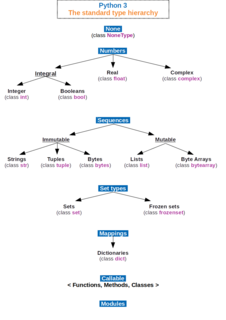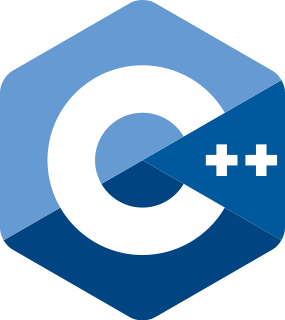Overview
The central idiom in policy-based design is a class template (called the host class), taking several type parameters as input, which are instantiated with types selected by the user (called policy classes), each implementing a particular implicit interface (called a policy), and encapsulating some orthogonal (or mostly orthogonal) aspect of the behavior of the instantiated host class. By supplying a host class combined with a set of different, canned implementations for each policy, a library or module can support an exponential number of different behavior combinations, resolved at compile time, and selected by mixing and matching the different supplied policy classes in the instantiation of the host class template. Additionally, by writing a custom implementation of a given policy, a policy-based library can be used in situations requiring behaviors unforeseen by the library implementor. Even in cases where no more than one implementation of each policy will ever be used, decomposing a class into policies can aid the design process, by increasing modularity and highlighting exactly where orthogonal design decisions have been made.

In computer science and computer programming, a data type or simply type is an attribute of data which tells the compiler or interpreter how the programmer intends to use the data. Most programming languages support common data types of real, integer and boolean. A data type constrains the values that an expression, such as a variable or a function, might take. This data type defines the operations that can be done on the data, the meaning of the data, and the way values of that type can be stored. A type of value from which an expression may take its value.
Implementation is the realization of an application, or execution of a plan, idea, model, design, specification, standard, algorithm, or policy.
In computer science, separation of concerns (SoC) is a design principle for separating a computer program into distinct sections, so that each section addresses a separate concern. A concern is a set of information that affects the code of a computer program. A concern can be as general as the details of the hardware the code is being optimized for, or as specific as the name of a class to instantiate. A program that embodies SoC well is called a modular program. Modularity, and hence separation of concerns, is achieved by encapsulating information inside a section of code that has a well-defined interface. Encapsulation is a means of information hiding. Layered designs in information systems are another embodiment of separation of concerns.
While assembling software components out of interchangeable modules is a far from new concept, policy-based design represents an innovation in the way it applies that concept at the (relatively low) level of defining the behavior of an individual class. Policy classes have some similarity to callbacks, but differ in that, rather than consisting of a single function, a policy class will typically contain several related functions (methods), often combined with state variables or other facilities such as nested types. A policy-based host class can be thought of as a type of metafunction, taking a set of behaviors represented by types as input, and returning as output a type representing the result of combining those behaviors into a functioning whole. (Unlike MPL metafunctions, however, the output is usually represented by the instantiated host class itself, rather than a nested output type.)
In computer programming, a subroutine is a sequence of program instructions that performs a specific task, packaged as a unit. This unit can then be used in programs wherever that particular task should be performed.
In information technology and computer science, a program is described as stateful if it is designed to remember preceding events or user interactions; the remembered information is called the state of the system.
Template metaprogramming (TMP) is a metaprogramming technique in which templates are used by a compiler to generate temporary source code, which is merged by the compiler with the rest of the source code and then compiled. The output of these templates include compile-time constants, data structures, and complete functions. The use of templates can be thought of as compile-time execution. The technique is used by a number of languages, the best-known being C++, but also Curl, D, and XL.
A key feature of the policy idiom is that, usually (though it is not strictly necessary), the host class will derive from (make itself a child class of) each of its policy classes using (public) multiple inheritance. (Alternatives are for the host class to merely contain a member variable of each policy class type, or else to inherit the policy classes privately; however inheriting the policy classes publicly has the major advantage that a policy class can add new methods, inherited by the instantiated host class and accessible to its users, which the host class itself need not even know about.) A notable feature of this aspect of the policy idiom is that, relative to object-oriented programming, policies invert the relationship between base class and derived class - whereas in OOP interfaces are traditionally represented by (abstract) base classes and implementations of interfaces by derived classes, in policy-based design the derived (host) class represents the interfaces and the base (policy) classes implement them. It should also be noted that in the case of policies, the public inheritance does not represent an is-a relationship between the host and the policy classes. While this would traditionally be considered evidence of a design defect in OOP contexts, this doesn't apply in the context of the policy idiom.
Multiple inheritance is a feature of some object-oriented computer programming languages in which an object or class can inherit characteristics and features from more than one parent object or parent class. It is distinct from single inheritance, where an object or class may only inherit from one particular object or class.
Object-oriented programming (OOP) is a programming paradigm based on the concept of "objects", which can contain data, in the form of fields, and code, in the form of procedures. A feature of objects is an object's procedures that can access and often modify the data fields of the object with which they are associated. In OOP, computer programs are designed by making them out of objects that interact with one another. OOP languages are diverse, but the most popular ones are class-based, meaning that objects are instances of classes, which also determine their types.
A disadvantage of policies in their current incarnation is that the policy interface doesn't have a direct, explicit representation in code, but rather is defined implicitly, via duck typing, and must be documented separately and manually, in comments. The main idea is to use commonality-variability analysis to divide the type into the fixed implementation and interface, the policy-based class, and the different policies. The trick is to know what goes into the main class, and what policies should one create. The article mentioned above gives the following answer: wherever we would need to make a possible limiting design decision, we should postpone that decision, we should delegate it to an appropriately named policy.
In computing, source code is any collection of code, possibly with comments, written using a human-readable programming language, usually as plain text. The source code of a program is specially designed to facilitate the work of computer programmers, who specify the actions to be performed by a computer mostly by writing source code. The source code is often transformed by an assembler or compiler into binary machine code understood by the computer. The machine code might then be stored for execution at a later time. Alternatively, source code may be interpreted and thus immediately executed.
Duck typing in computer programming is an application of the duck test—"If it walks like a duck and it quacks like a duck, then it must be a duck"—to determine if an object can be used for a particular purpose. With normal typing, suitability is determined by an object's type. In duck typing, an object's suitability is determined by the presence of certain methods and properties, rather than the type of the object itself.

In computer programming, a comment is a programmer-readable explanation or annotation in the source code of a computer program. They are added with the purpose of making the source code easier for humans to understand, and are generally ignored by compilers and interpreters. The syntax of comments in various programming languages varies considerably.
Policy classes can contain implementation, type definitions and so forth. Basically, the designer of the main template class will define what the policy classes should provide, what customization points they need to implement.
It may be a delicate task to create a good set of policies, just the right number (e.g., the minimum necessary). The different customization points, which belong together, should go into one policy argument, such as storage policy, validation policy and so forth. Graphic designers are able to give a name to their policies, which represent concepts, and not those which represent operations or minor implementation details.
Policy-based design may incorporate other useful techniques. For example, the template method pattern can be reinterpreted for compile time, so that a main class has a skeleton algorithm, which — at customization points — calls the appropriate functions of some of the policies.
This will be achieved dynamically by concepts [1] in future versions of C++.






